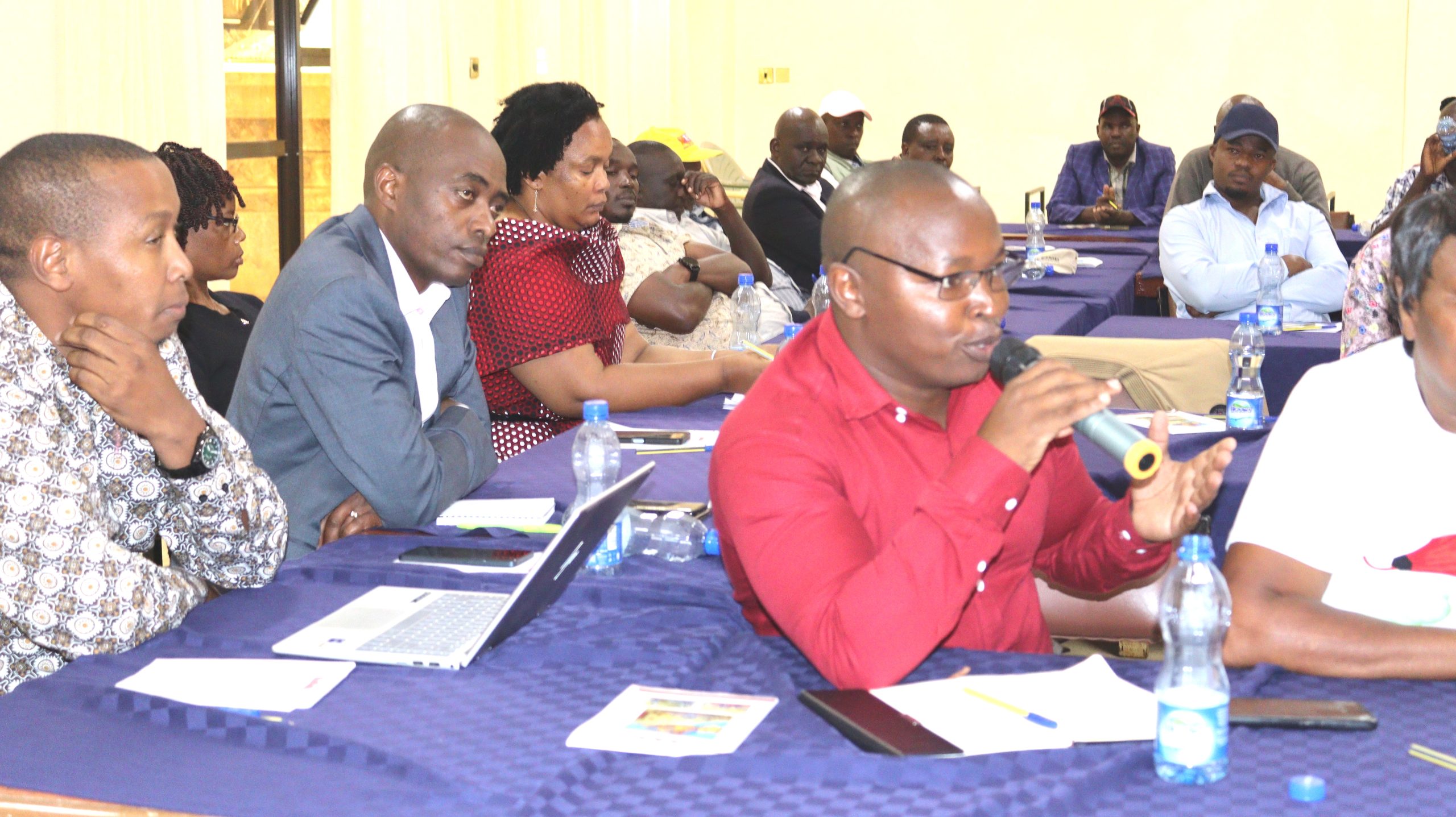In the past year, coffee reforms have led to the auction of 496,440 bags of coffee through the Nairobi Coffee Exchange (NCE) earning the country more than KSh17 billion.
The reforms steered by NCE and Capital Markets Authority (CMA) have been ranked the best as the system has been transparent to benefit the farmers in the cooperative societies.
In the counties sensitization meetings held in Murang’a, Kiambu, Nyeri and Kirinyaga recently the farmers suggested that they be paid in dollars instead of the Kenya shillings, as the coffee regulations 2019 demands.
In the forum convened by the NCE, the farmers questioned the delay in remittance of the payment after the sale of their coffee.
In the meetings, the farmers called for strengthened reforms, availability of subsided fertilisers, payment of the produce through dollar accounts, collaboration with Coffee Research Institute (CRI) to help combat pests and diseases.
Peter Njoroge, a farmer from Mathioya said the regulations demand that farmers’ dues be remitted through the Direct Settlement System (DSS) after the auction.
“It is a challenge that the remittance of resources takes between three weeks and one month,” said Njoroge.
But Cooperative Cabinet Secretary Simon Chelugui said the DSS has managed to reduce the process with the farmers accessing their money instantly.
READ ALSO:
Agricultural Food Authority lauds MPs for amending Financial Bill
Speaking from Mombasa recently, Chelugui said the delay in remittances of money to the growers at times occasioned by buyers delay to pay the money.
NCE CEO Lisper Ndung’u said the introduction of regulations have been remarkable, with farmers getting a better deal despite challenges encountered in the past year.
Ndung’u says the players in the value chain are closely monitored by the regulators to ensure they work in respect to the regulations for the interest of the farmers in the 33 counties.
“In the value chain there are farmers, millers, marketing agents, warehouse managers, buyers all who have been placed in the DSS that pays for the services rendered,“ said Ndung’u.
NCE has also directed that the societies in the crop year 2024/2025 must be linked with the DSS where the leadership will be free to monitor the transactions freely.
“At the inception of the reforms, there were challenges in DSS as farmers’ details entered were incorrect thus making it difficult in the remittance of payments,” said Ndung’u.
She said the service providers in the coffee value chain are required to harmonise their charges and upload them in the DSS.
Deputy President Rigathi Gachagua said coffee programmes have been successful based on the implementation of reforms.
Gachagua said the government backed reforms will ensure farmers have accessible inputs to facilitate increased production from the current 51,000 metric tonnes to over 100,000 metric tonnes.
“I have been bestowed with responsibility to streamline the coffee, tea and milk sectors to productivity,” said Gachagua.
A member of NCE working committee Peter Githinji said DSS ensures timely and transparent payment of coffee sales proceeds, directly transferring funds to farmers’ accounts.
“The system reduces delays and financial mismanagement risks, enhancing farmers’ financial stability and trust in the trading process,” said Githinji.
Githinji represented the NCE chairman Kenneth Gitonga in Nyeri and Kirinyaga counties forums where he urged the farmers to nurture their coffee trees effectively.
The Cooperative Bank Agribusiness Manager Esther Kariuki said they are working with consultation with the regulatory bodies, to ensure service providers’ charges are harmonised for effective payments after the auction.
“From July 1st, the service providers contracted by the coffee societies and estates have been instructed to upload their invoices upon the closure of a sale for effective remittance of payment,” said Kariuki.
Chairman at Inoi Cooperative Society in Kirinyaga, Felix Muriithi Mwai said the government should support the farmers towards increased production of the commodity.
Mwai said Kenya should emulate Uganda where the growers concentrate on increased production through their government support.
Francis Ngone, the chairman of Murang’a Farmers Cooperative Union said there was a need to strengthen the reforms as the regulations are critical.
Ngone said 80 per cent of the reforms have been achieved, calling on the implementation of the remaining ones.
“The formulation of the coffee policies started way back in 2016. It has been a long journey but we are about to get through,” said Ngone.
Morris Mwangi Wangari a farmer at Rung’eto Cooperative Society in Kirinyaga said there was need for the government to introduce the extension officers to ensure the modern farming practises are followed.
“More education is required on functions of the DSS as the majority of the farmers are in the dark on its operations,” said Wangari.
By Correspondent
Get more stories from our website: Sacco Review.
For comments and clarifications, write to: Saccoreview@
Kindly follow us via our social media pages on Facebook: Sacco Review Newspaper for timely updates



